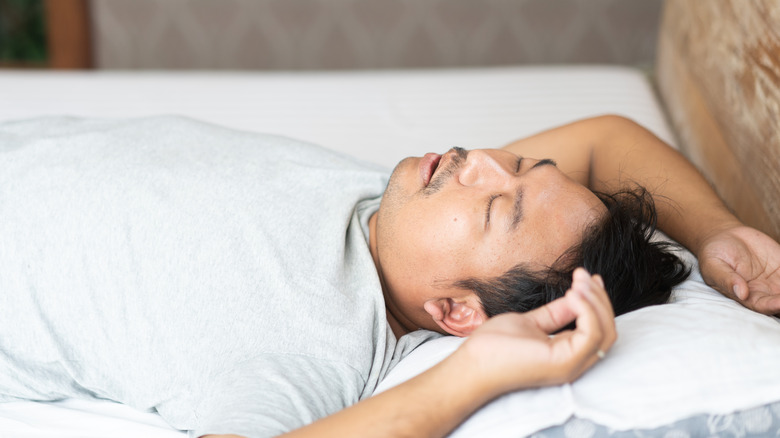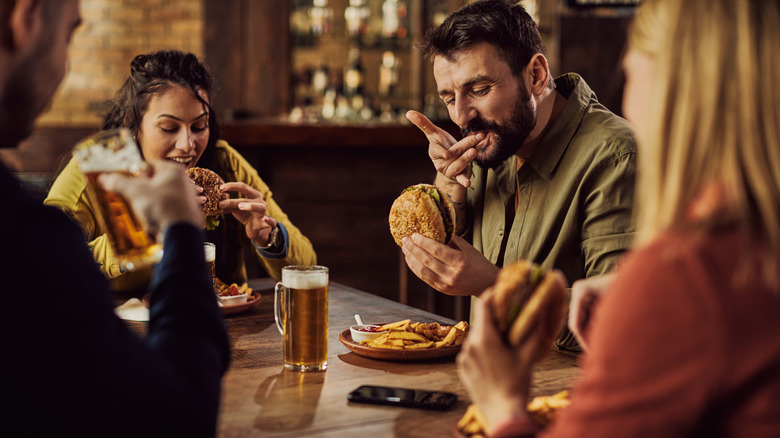How To Get A Night Of Restful Sleep After Drinking
For many people, the worst part of a night out on the town is the poor sleep quality that can happen as a result. Unfortunately, while alcohol can help you fall asleep, it can reduce the actual quality of your sleep as well. This is because it keeps you from falling into deep, REM sleep, according to WebMD. REM sleep is critical if you want to wake up feeling restored and alert.
The more you drink, the more pronounced this effect is, which is why it is so common to feel tired and groggy the day after a party, even if you have slept for hours. While alcohol can initially make you feel tired and sleepy, it's not an effective method to remedy sleep issues. Researcher Irshaad Ebrahim tells WebMD, "The immediate and short-term impact of alcohol is to reduce the time it takes to fall asleep... However, this is offset by having more disrupted sleep in the second half of the night."
Fortunately, you may be able to mitigate the impacts of alcohol on your sleep with a little advanced preparation.
Reducing the impact of alcohol before bedtime
Aside from incorporating basic sleep hygiene protocols such as sleeping in a cool, dark, and quiet environment, science points to effective measures you can take before you start drinking. In fact, one of the most important things you can do is to eat a meal at least an hour before you start drinking. A 2001 study published in the Journal of Clinical Pharmacology aimed to study the effects on individuals who drank in a fasted state versus those who drank after eating a meal. The researchers found that participants who consumed food an hour before alcohol entered their bloodstream had a 45% faster alcohol elimination rate than those in a fasting state. This can go a long way toward mitigating the impacts of alcohol on the body.
Another way to prevent a poor night of sleep during a night of drinking is to stop consuming alcohol at least four hours before you hop into bed, according to VeryWell Health. A single drink can take up to an hour for your body to process. Adding more to the mix means additional hours on top of that. Getting enough time between drinks and bedtime can help prevent broken sleep, night sweats, nightmares, and even headaches.


